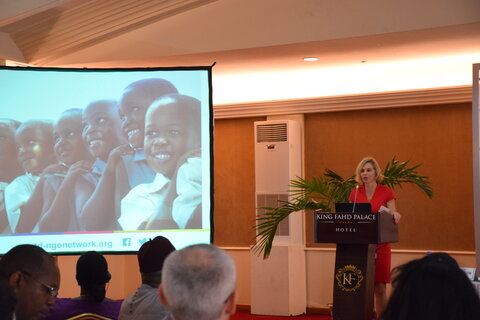8th annual NNN conference focuses on need for collaborative action to end NTDs

The 8th NTD NGO Network summit was opened at the King Fahd Palace Hotel, Dakar, Senegal, yesterday (28 Sept) as up to 300 participants from 100 organisations and 49 countries discussed the importance of cross-sector collaboration in ending the Tropical Neglected Diseases that affect one billion of the world’s poorest people.
Wendy Harrison, Chair of the NNN and Executive Director of Schistosomiasis Control Initiative at Imperial College London, said in her opening address: “I’m delighted to be chairing this important conference. Building on the successes of previous NNN conferences, this year we have an even greater focus on working together to generate solutions to the challenges we face.”
The Secretary General for the Senegalese Health Ministry, Dr Ibrahima Wone addressed delegates, saying that NTDs are a cause of and contribute to poverty. He reiterated his government’s commitment to find the resources to fight NTDs, as well as called for support to bolster existing efforts.
Tanya Wood, Vice Chair of NNN and ILEP CEO spoke about the BEST framework, an approach which encompasses Behaviour, Environmental factors, Social Inclusion and Treatment: “We recognise the need for the health and development sectors to work hand in hand to play a leading role in control and eliminate NTDs.”
She emphasised the convening power of NGOs, which play a pivotal role in connecting donors and grassroots organisations, scientists and policy makers, and other key influencers.
For the first time, delegates will come together in a series of discussion-based workshop sessions to identify actions addressing a wide range of questions that are relevant beyond disease-specific groups. These include:
- Are we building sustainable systems for NTD systems?
- Help or hindrance: can faith -based institutions make a difference in the fight against NTDs?
- How might the London Declaration Scorecard evolve to meet the future needs of the NTD community?
- How can we increase participation and social inclusion of people affected by NTDs?
- Have the NTD programmes had a significant impact on disease and disability?
Nominations for the NNN 2018 Executive Committee were announced, and will be appointed this afternoon, before the close of the conference.